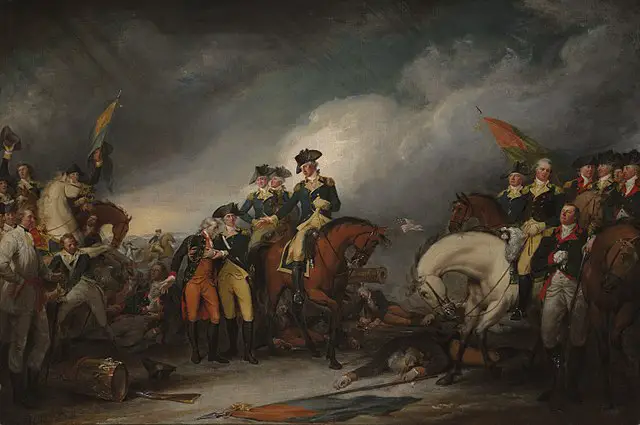Trenton, New Jersey
For thousands of years, the area of the United States, now known as Trenton, New Jersey, was once the home of the Lenni-Lenape Native Indians. Like most Native Indian tribes, they held great respect for nature and believed that no one should ever own the land.
They had a thriving culture that involved fishing, hunting, and farming crops such as beans and corn. This all changed with the arrival of European explorers who tried to take the land for themselves.
Some referred to the Lenni-Lenape Indians as the Delaware Nation or the Delaware Indians.

Although Giovanni da Verrazzano was the first European explorer to explore the New Jersey coast in 1524, the land wasn’t claimed until 1609 when Henry Hudson claimed it for the Dutch.
Hudson was exploring what is now called the Hudson River, and the Trenton area was named New Netherlands.
Before long, a lot of Swedish and Dutch settlers showed up, and they had rather peaceful relations with the Native Indians through fur trading.
Unlike the British, French, and Spanish, the Dutch and Swedish were looking for good trading relationships with the Native tribes.
Within fifty years or so, other Europeans began to arrive to settle in the area, and it didn’t take long for the English to outnumber the Dutch. With a growing English population, they sent an English fleet in 1664 into the New York Harbor, and they claimed the area for the English.
The English colonists were arriving to seek religious freedom. When the area of New Jersey was given to Sir George Carteret and Lord John Berkeley, they divided it up into two areas. The west was going to be settled by mostly Quakers, and the east was to be settled by mostly Puritans and others that were rich plantation owners.
This condition remained until 1702 when the two sides were united as the colony of New Jersey, and Edward Hyde was listed as its first governor.
New Jersey became one of the thirteen original colonies, and by the late 1700s, there was talk of rebellion against British rule. New Jersey was between two hotbed centers for the American Revolution and was the center of quite a few of the battles.
On Christmas Eve of 1776, George Washington made his famous trip across the Delaware River with his Continental Army to capture Trenton.
This area of New Jersey continued to be the center of other battles during the Revolutionary War, with the most notable being the Battle of Monmouth and the Battle of Princeton.
Princeton became a central location that was so important that for a few months, it was the temporary capital for the new country that had been fought for so hard. It was later changed when the colonial representatives met at Princeton University for the Continental Congress.
Once the Colonial Army won the Revolutionary War, they decided to name their new country, the United States. The representatives of each of the colonies that were now states were sent to write the Constitution.
Each of the states ratified or agreed to the final version of the Constitution, and in 1787 New Jersey officially became the third state to ratify the new U.S. Constitution and was the first state to sign the Bill of Rights in 1789. In 1790 their representatives decided that Trenton would be the capital of New Jersey.
Q&A:
What was the name of the Native Indian tribe that lived in New Jersey for thousands of years?
Lenni-Lenape
Who sent Henry Hudson to claim Trenton and the surrounding New Jersey areas?
The Dutch
What were the first settlers in New Jersey interested in when working with the Native Indians?
Fur trading
What famous event did George Washington participate in on Christmas eve?
The crossing of Delaware
Why was Trenton so important during the American Revolution?
Central location made it a hotbed for battles
New Jersey became what state to ratify the U.S. Constitution?
Third



